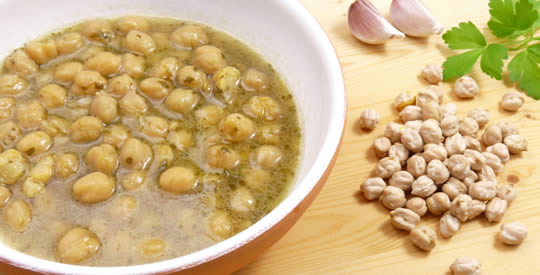
Originally grown in the Mediterranean area, but now widespread throughout the world, chickpeas are part of the culinary tradition of half the world. Rich in vitamins and minerals, but also in proteins and fibre, chickpeas are excellent for protecting our health.
They contain potassium, calcium, phosphorus, magnesium, sodium, iron, zinc, copper and manganese, but also vitamins C, K, E and group B. They are rich in fibre, vegetable proteins and omega 3 fatty acids.
Digestion . Containing large amounts of fiber, chickpeas help prevent constipation by promoting intestinal regularity. Furthermore, they promote all the functions of the digestive system.
Hypertension . A low-sodium diet is essential for lowering blood pressure. However, increasing the consumption of potassium (of which chickpeas are rich) can be of great help, thanks to its vasodilatory properties.
Diabetes . Various studies have shown that type 1 diabetics who eat a diet with lots of fiber-rich foods, such as chickpeas, have lower blood glucose levels. Type 2 diabetics who consume chickpeas regularly can improve their blood sugar and lipid levels.
Cholesterol . Increasing the consumption of chickpeas in the diet helps us reduce the amount of low-density lipoproteins in the blood, also known as “bad cholesterol”.
Cancer . The selenium in chickpeas plays an important role in the function of liver enzymes that help detoxify it, expelling cancer-causing compounds. Additionally, the vitamin C in chickpeas has powerful antioxidant properties.
Bone . The vitamin K, iron, phosphate, calcium, magnesium, manganese and zinc content of chickpeas contributes to the formation of bones, improving their structure and resistance.
